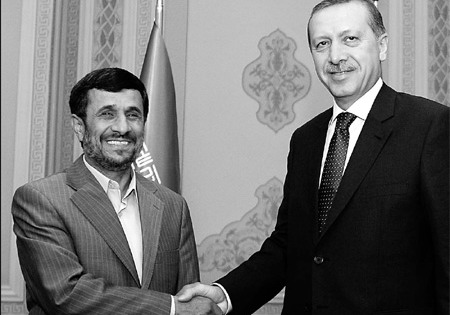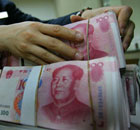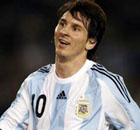Foreign and Military Affairs
Iran's president ready to pay visit to Shanghai Expo
By Zhang Haizhou (China Daily)
Updated: 2010-06-10 06:43
 |
Large Medium Small |
|
|
While the Foreign Ministry considers Ahmadinejad's attendance at the Shanghai Expo as the reason for his visit, analysts say he is here to seek more support from China to water down fresh sanctions. They also said the sudden visit would not prevent the resolution from passing the Security Council.
"We believe that dialogue and negotiation are the proper way to settle this issue," Qin said. "We hope Iran strengthens its cooperation with the IAEA to settle the pending issues."
While Western powers suspect Iran of developing nuclear weapons, Teheran says its nuclear program is for peaceful power generation. As a country with veto power on the UN Security Council, China's decision would be key to passing the resolution.
The final version of the resolution, as AP reported on Tuesday, would ban Iran from pursuing "any activity related to ballistic missiles capable of delivering nuclear weapons," bar Iranian investment in activities such as uranium mining and prohibit Iran from buying several categories of heavy weapons, including assault helicopters and missiles.
It did not include a list of new individuals and entities - including Iran's Revolutionary Guard - that would be subject to sanctions such as an asset freeze. A council diplomat familiar with the negotiations said that the list, which was agreed on by the five veto-wielding permanent members, had been circulated to the 10 non-permanent members and was being kept open.
Commenting on Ahmadinejad's upcoming Shanghai-tour, Professor Zhang Xiaodong, deputy chief of the Chinese Association for Middle East Studies, said the Iranian president is here for more China support to water down the sanctions.
But China, Zhang said, also needs to consider its ties with the US. "On some issues we may challenge the US. But on some other issues it's not worth doing so, as it may hurt the Sino-US ties."
He said China would tell Iran not to be that rigid even though the US now has a lot of foreign policy troubles on its plate. "For Iran and China, it's in the interests of both to have dialogues with the US. "
The Iranian president, however, continued to be tough to Western powers on Tuesday.
Despite a looming UN vote on the resolution, Ahmadinejad warned his country's nuclear fuel swap deal with Turkey and Brazil was "an opportunity that would not be repeated", Reuters reported.
He also asked the US to change its hard-line policy.
"We still hope they will be able to use this opportunity, but we say this opportunity will not be repeated," he told a news conference in Istanbul, where he was attending the Conference on Interaction and Confidence Building Measures in Asia summit.
"We expected President (Barack) Obama to start a new policy. I'm not saying I'm totally disappointed but if he fails to make a change, the first ones to lose would be President Obama and the people of the US," Ahmadinejad said.
He said Teheran would not talk over its nuclear work if new sanctions against Teheran are adopted, the local satellite Press TV reported.
Turkey and Brazil last month resurrected parts of a UN-backed offer for Teheran to part with 1,200 kg of low enriched uranium - potential nuclear weapons material - in return for special fuel rods for a medical research reactor.
The US and other powers have regarded the deal as too little, too late, and they submitted extended sanctions to the Security Council last month for approval.
Turkey and Brazil, both in the 15-member Security Council, say their deal with Iran eliminates the need for sanctions, as it created a diplomatic opening to tackle larger issues surrounding Teheran's nuclear program.
A group of US analysts and diplomats, including former US ambassador to the UN Thomas Pickering, issued a statement last week urging the so-called "Iran Six" - the US, China, Russia, France, Britain and Germany - to "take advantage of this opportunity as the first step in a broader dialogue that could include further confidence-building measures".
Iran's agreement to export a large portion of its low enriched uranium abroad for up to a year is worthy of consideration, the statement said.
Trita Parsi, head of the National Iranian American Council and one of the signatories of the statement, wrote to China Daily in an e-mail: "there may not be many more opportunities" for the US and Iran to engage.
"Obviously, nothing is perfect but the task here is to try to provide opportunities to sit down, talk and establish a more robust procedure for diplomacy," Parsi said.
Ma Liyao contributed to the story












